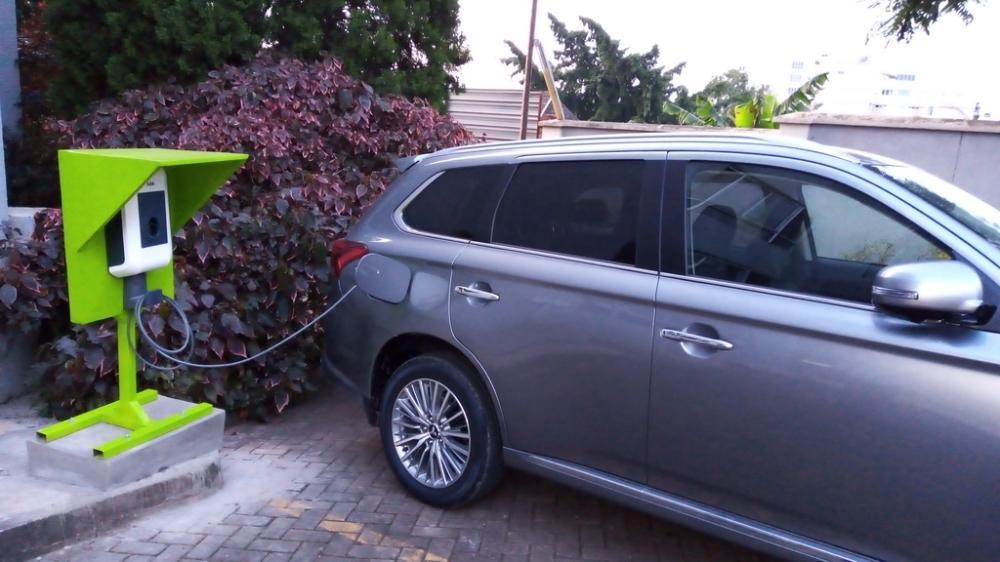Fidele Nsengiyumva
Africa-Press – Rwanda. As Rwanda transitions towards electric mobility with a growing number of hybrid cars and electric vehicles (EVs), the demand for skilled mechanics is also increasing.
However, industry experts point to a gap in technical expertise, which could affect service efficiency and increase vehicle downtime, if it is not bridged.
According to data from the Rwanda Revenue Authority, of the 7,172 hybrid and EV imported into Rwanda from 2020 to 2024, slightly over 7%, were electric.
According to Serge Ndatimana, the operations manager at Garage Weikl, Rwandan hybrid and EV mechanics need necessary skills for efficient repairs to be able to meet the country’s growing demand.
“This skills gap delays service delivery. A repair that should take two hours might take three days to a week,” Ndatimana explained.
While mechanics use the internet to seek guidance from international counterparts and access online tutorials, Ndatimana emphasized the need for proper training.
“It’s crucial to acquire adequate skills. Today, we manage by learning from resources available on the internet, but in five years, we should have mastered everything,” he said.
Ndatimana noted that hybrid cars present particular maintenance challenges. Many have exceeded their battery lifespan of five to seven years, leading to frequent breakdowns. Common issues include malfunctioning Anti-lock Braking Systems (ABS) and battery faults.
While EVs generally have fewer breakdowns due to their newness and warranty coverage, he said, they too are not without challenges.
Ndaitimana stated that a typical EV battery consists of 18 to 30 blocks, each comprising multiple individual cells connected in parallel. The total number of blocks depends on the battery size and cell format.
“Replacing a single battery unit costs Rwf85,000, and replacing an entire 18-block battery system exceeds Rwf1.5 million. Additionally, gearbox malfunctions could lead to more expenses,” he explained.
Aron Ntwali, a manager at Carcarbaba, a car dealer and distributor of DONGFENG Motors in Rwanda, highlighted the importance of factory-trained mechanics.
“We ensured that over 10 of our mechanics received professional training from the manufacturer. Through in-house training programs, they have also transferred skills to other technicians, making us fully equipped to handle any EV mechanical issue,” Ntwali said.
TVET training
Paul Umukunzi, the Director General of Rwanda TVET Board (RTB), acknowledged the skills gap and outlined ongoing initiatives to address it.
“TVET centers in Rwanda are adapting their curricula to include specialized training for EV mechanics and assembly,” Umukunzi said.
“EV technology has been integrated into the automobile curriculum to prepare our students for the job of maintenance and motorcycle assembly. However, one of the major challenges remains the limited local availability of spare parts, including batteries, controllers, and charging systems.”
The Rwandan government is actively supporting the EV sector through policy incentives such as tax breaks on imported EV and spare parts and investment-friendly policies in Special Economic Zones to encourage local assembly.
Several startups, including Safi Universal Link (SUL), Rwanda Electric Motors (REM), and Ampersand, have established electric motorcycle assembly plants and battery-swapping stations.
Umukunzi urged private sector players to support training initiatives for mechanics through curriculum development and dual training programs.
“Companies should collaborate with technical institutions and the government to co-develop EV-specific curricula. Dual training, which combines classroom learning with hands-on experience in service centers and assembly plants, is essential,” he noted.
“We commend companies like SUL and REM, which are already facilitating EV training for students.”
He highlighted key efforts needed to strengthen local technical capacity, including integrating EV-specific training into Technical Secondary Schools and vocational centres.
He also noted the need to develop certification programmes in partnership with international organizations, establishing public-private academies to provide technical expertise.
“As Rwanda accelerates its shift to electric mobility, bridging the skills gap among mechanics remains a priority. With collaborative efforts between government institutions, the private sector, and international partners, the country is on track to build a competent workforce capable of sustaining its growing EV industry,” Umukunzi said.
Source: The New Times
For More News And Analysis About Rwanda Follow Africa-Press






